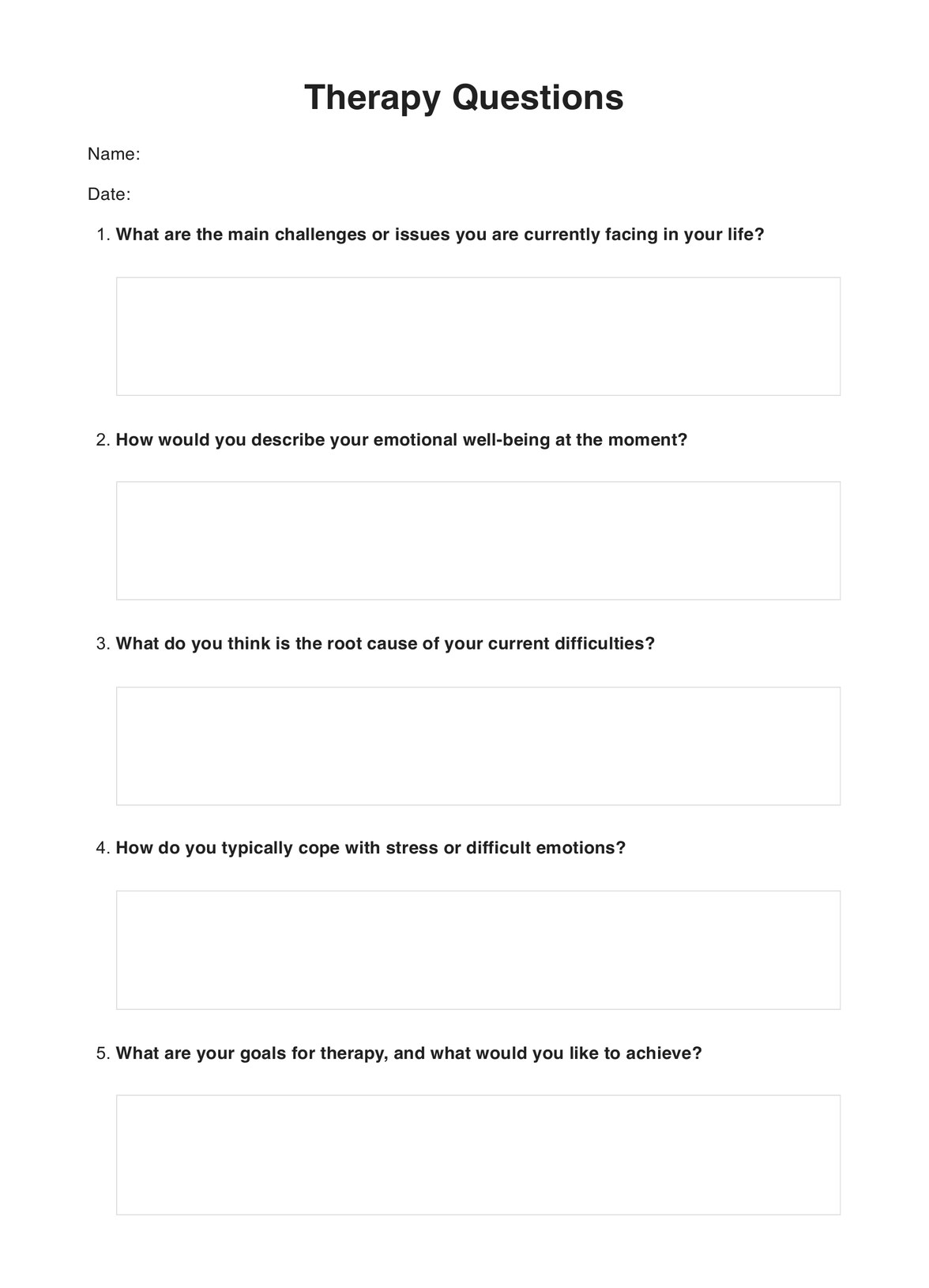Therapists, psychologists, social workers, counselors, psychiatric nurses, psychiatrists, case managers, community outreach workers, and other mental health professionals can use Therapy Questions to help collect client information.

Therapy Questions
Learn how to use Therapy Questions to unearth your client's issues. Download a free PDF template and example here.
Use Template
Therapy Questions Template
Commonly asked questions
Therapy Questions can be used in various settings, from individual counseling to family therapy, to group sessions. It can also be used to supplement assessments and facilitate client self-awareness.
You can use these questions as an individual template or combine them with other tools to better understand your client's needs. Depending on your practice, it can be used in short- and long-term settings.
EHR and practice management software
Get started for free
*No credit card required
Free
$0/usd
Unlimited clients
Telehealth
1GB of storage
Client portal text
Automated billing and online payments











